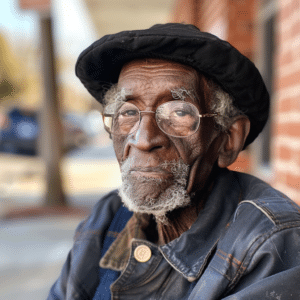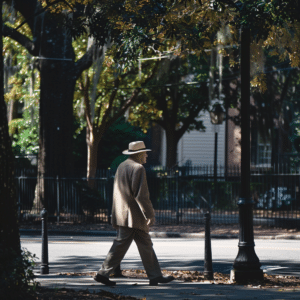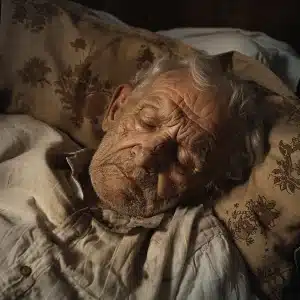If you suspect a loved one is suffering from abuse in a Myrtle Beach nursing home, you need a Myrtle Beach nursing home abuse lawyer immediately. This article will outline the important steps a lawyer can take to help protect your loved one’s rights and work toward holding those responsible accountable. Learn what to expect from the legal process and how to get the help you need.


Hurt in an Accident? Hire Maguire
Hurt? You Need Our Help
Give us a call for a FREE & CONFIDENTIAL Case Review*
Key Takeaways
- Our Myrtle Beach nursing home abuse lawyers offer free initial consultations and work on a contingency fee basis, ensuring you only pay if your case is won.*
- Victims of nursing home abuse may be entitled to various forms of compensation, including economic damages (medical expenses, lost wages) and non-economic damages (pain and suffering, emotional distress).
- Nursing home abuse can occur in understaffed and poorly managed facilities, especially during care transitions, leading to severe consequences such as malnutrition, bedsores, and emotional distress.
Why Choose Our Myrtle Beach Nursing Home Abuse Lawyers?
Choosing the right legal representation for nursing home abuse cases is of utmost importance. Our Myrtle Beach nursing home abuse lawyers stand out for several reasons, starting with our commitment to offering free initial consultations.* This no-obligation meeting allows you to discuss your case with an experienced lawyer who can provide insight into your legal options without any upfront costs. We understand that this is a stressful time, and the last thing you need is the added burden of legal fees.
Another significant advantage of choosing our firm is our contingency fee arrangement. This means you only pay if we win your case.*We believe that everyone deserves access to justice, regardless of their financial situation. This ‘no win, no fee’ policy ensures that our interests are aligned with yours – we are motivated to secure the best possible outcome for you and your loved ones.
Our dedication to seeking justice for nursing home abuse victims extends beyond financial considerations. We pride ourselves on our commitment to:
- keeping clients informed
- answering all their questions promptly
- building strong cases
- helping hold those responsible for abuse and neglect accountable.
Our experienced team works tirelessly to help victims. Your trust and satisfaction are our top priorities, and we are here to support you every step of the way.
Understanding the Value of Your Myrtle Beach Nursing Home Abuse Case
The value of a nursing home abuse case hinges on several factors, including the severity of the injuries, the extent of the damages, and the specific legal nuances involved. Grasping these elements is vital in the pursuit of fair compensation. Economic damages, which cover tangible losses such as medical bills, lost wages, and property damage, form a significant portion of the compensation. These damages aim to alleviate the financial burden caused by the abuse or neglect.
In addition to economic damages, non-economic damages address the intangible suffering endured by the victim. This includes compensation for:
- pain and suffering
- mental anguish
- loss of enjoyment of life
- emotional distress
These damages recognize the profound impact abuse can have on a person’s quality of life and emotional well-being.
In some cases, victims of nursing home abuse may be entitled to various forms of compensation, including:
- Medical expenses
- Pain and suffering
- Emotional distress
- Loss of enjoyment of life
- Loss of companionship
- Punitive damages (awarded to punish the wrongdoer for malicious or reckless conduct and serve as a deterrent to prevent similar actions in the future)
Grasping the full gamut of possible compensation is key to guarantee that victims of nursing home abuse receive the justice they are entitled to.

Hurt in an Accident? Hire Maguire
Hurt? You Need Our Help
Give us a call for a FREE & CONFIDENTIAL Case Review*
Common Environments Where Nursing Home Abuse Occurs
Nursing home abuse often occurs in environments where facilities are understaffed and poorly managed, leading to nursing home neglect. Over 90% of nursing homes are currently understaffed, which significantly increases the risk of abuse and neglect for a nursing home resident. In these settings, overworked and stressed staff are more likely to commit abusive acts, and residents requiring the most medical attention are at the greatest risk. The lack of adequate care and supervision makes individualized attention impossible, leading to severe consequences such as malnutrition, weight loss, and bedsores.
Care transitions are another common environment where nursing home abuse can occur. During these times, the risk of neglect and errors increases, as staff may be overwhelmed or insufficiently trained to handle the transition. High workloads and inadequate care standards often mean that changes in a patient’s condition go unnoticed, leading to serious health complications.
Some examples of care transitions include:
- Moving from the hospital to a nursing home
- Transferring between different units within a nursing home
- Discharging from a nursing home to home care or another facility
It is important to be aware of these potential risks and advocate for proper care during care transitions.
Identifying these high-risk environments is paramount to shielding nursing home residents from abuse and neglect.
Recognizing Different Forms of Nursing Home Abuse
Nursing home abuse takes many forms, each with its own set of devastating consequences. Physical abuse involves actions that cause bodily harm, such as hitting, shoving, or unnecessary restraint. Victims may exhibit bruises, lacerations, fractures, or display fear around caregivers. The physical toll can be immense, leading to long-term health issues and diminished quality of life.
Emotional abuse, while less visible, is equally harmful. It includes behaviors that cause psychological trauma, such as bullying, threats, and humiliation. Victims of emotional abuse may suffer from depression, anxiety, or withdrawal from social interactions. This form of abuse can leave deep emotional scars that are challenging to heal.
Sexual abuse in nursing homes, a form of elder abuse, is a horrifying reality that includes assault, rape, and exposure. Vulnerable residents, such as those with dementia, are particularly at risk. Signs of sexual abuse can include bruising around the breasts and genitals, but many cases go unreported due to the victim’s inability to communicate.
Financial exploitation, a form of financial abuse, is quite common where perpetrators gain access to a resident’s accounts, take valuables, or bill for services not provided. This exploitation can leave victims financially destitute and emotionally distraught.
Neglect, the most pervasive form of abuse, involves failing to provide necessary care. This includes inadequate food, water, medication, and supervision. Malnutrition, dehydration, unsanitary living conditions, and hair loss are all signs that may indicate neglect in individuals. These indicators can be crucial in identifying and addressing cases of neglect. Identifying these signs is imperative to intervene and protect nursing home residents from further harm.
Medical Complications and Injuries from Nursing Home Abuse
Nursing home abuse can lead to a range of medical complications and nursing home abuse injuries, significantly impacting the victim’s health and quality of life.
Physical injuries are among the most common, including:
- Bruises
- Cuts
- Fractures
- Spinal injuries
- Broken bones, especially hip fractures
These injuries often result from falls or abusive handling by caregivers and may require medical treatment.
Bedsores, also known as pressure ulcers, are a severe complication of neglect. These sores develop when a resident remains in the same position for too long without being moved. In advanced stages, bedsores can lead to life-threatening infections, further exacerbating the victim’s suffering. Infections, in general, spread quickly in nursing homes, particularly if wounds or sores are not treated properly.
The psychological impact of abuse cannot be overstated. Emotional abuse and neglect can lead to depression, anxiety, and emotional distress, diminishing the quality of life and overall well-being of nursing home residents. Identifying and addressing these complications is vital for the well-being and safety of all residents.
Navigating Insurance Claims After Nursing Home Abuse
Navigating insurance claims after nursing home abuse can be a daunting task, but an experienced lawyer can make the process more manageable. Lawyers play a pivotal role in collecting key evidence, such as medical records, witness statements, and photographs, to substantiate the abuse claims. They meticulously document every detail to build a compelling case that highlights the extent of the abuse and the resulting damages.
Once the evidence is gathered, lawyers negotiate settlements with the aim of helping victims pursue the highest possible compensation.This involves sending a demand letter to the insurance company, outlining the abuse, the damages suffered, and a fair compensation amount. If negotiations fail, a skilled attorney is prepared to represent the victim in court to secure justice and financial relief.

Hurt in an Accident? Hire Maguire
Hurt? You Need Our Help
Give us a call for a FREE & CONFIDENTIAL Case Review*
Immediate Steps to Take After Suspecting Nursing Home Abuse
If you suspect nursing home abuse, it’s imperative to act swiftly. The first step is to report the abuse to the authorities. Contacting your local long-term care ombudsman or filing a complaint with your state’s Department of Public Health allows you to report the abuse anonymously. In cases where the victim is in immediate danger or experiencing a medical emergency, dial 911 without hesitation.
Gathering evidence is another vital step. Take photos of any physical injuries or signs of neglect, such as unsanitary living conditions. Detailed documentation can provide powerful evidence in building a case against the nursing home facility.
Finally, reach out to an experienced nursing home abuse lawyer for legal assistance. Lawyers can help file complaints with the appropriate agencies, involve law enforcement if necessary, and guide you through the legal process to pursue justice and compensation. Taking swift and decisive action can protect your loved one from further harm and hold the abusers accountable.
How Our Lawyers Build a Strong Nursing Home Abuse Case
Constructing a robust nursing home abuse case demands thorough attention to detail and a holistic approach. Our lawyers begin by proving that the nursing home had a legal duty of care, which they breached, leading to abuse or neglect. This involves gathering compelling evidence such as medical records, witness statements, and photos of injuries.
Interviewing key witnesses is a critical part of the process. Our lawyers speak with victims, other residents, and former employees to gather testimony about the nursing home’s conditions and practices. Reviewing medical records and treatment reports helps uncover failures in care, falsified documents, and medical errors that contributed to the abuse.
If settlement negotiations fail, our attorneys at our law firm are fully prepared to file lawsuits and represent clients in court. Clients commend our firm for its ability to document injuries and gather compelling evidence, highlighting our effectiveness in building strong cases and securing justice for our clients.
Filing Deadlines and Legal Timelines in South Carolina
Being aware of the filing deadlines for nursing home abuse cases in South Carolina is paramount for guaranteeing timely legal action. The statute of limitations for filing a nursing home abuse claim in South Carolina is typically three years from the date of the incident. This means that you have a limited window to file a civil claim and seek compensation for the abuse or neglect suffered.
Our legal team ensures that all necessary steps are taken swiftly to meet these deadlines. By reviewing the case promptly and determining the next steps, we ensure that your claim is filed within the legal timeframe, securing your right to pursue justice and compensation.
Types of Compensation Available for Nursing Home Abuse Victims
Nursing home abuse victims in Myrtle Beach may be eligible for various forms of compensation, depending on the specifics of their case. Economic damages cover tangible losses such as medical bills, prescription medications, and property damage. These damages aim to alleviate the financial burden caused by the abuse.
Non-economic damages address the intangible suffering endured by the victim, including physical pain, emotional suffering, and loss of enjoyment of life. These damages recognize the profound impact abuse can have on a person’s quality of life and emotional well-being.
In some cases, victims of nursing home abuse may be entitled to various types of compensation, including:
- Economic damages, which can cover medical costs from the last illness and funeral expenses
- Non-economic damages, which can include pain and suffering before death and loss of companionship
- Punitive damages, which may be awarded to punish the wrongdoer for malicious or reckless behavior
Grasping the full gamut of possible compensation is key to guarantee that victims of nursing home abuse receive the justice they are entitled to.
Contact Our Myrtle Beach Office for a Free Consultation*
If you or a loved one has been a victim of nursing home abuse, contact our Myrtle Beach office for a free consultation.* Our team of experienced attorneys is ready to discuss your case and explore your legal options without any upfront costs. We understand the emotional and financial strain that comes with these situations, and we are here to provide the support and guidance you need.
During the free consultation*, you will have the opportunity to speak directly with the lawyer handling your case, ensuring that all your questions are answered promptly. Our commitment to keeping clients informed and involved every step of the way sets us apart. Don’t hesitate to reach out – your path to justice and compensation begins with a simple phone call.
Frequently Asked Questions
What is emotional abuse in a nursing home?
Emotional abuse in a nursing home can include shouting, threatening, humiliating, and mocking the resident, which can have a serious impact on their well-being. It’s important to report any signs of emotional abuse to protect the residents.
What should I do if I suspect nursing home abuse?
If you suspect nursing home abuse, report it to the authorities right away, document any evidence, and seek legal assistance from a nursing home abuse lawyer. Taking these steps promptly is crucial to addressing the situation effectively.
What types of compensation are available for nursing home abuse victims?
Nursing home abuse victims may be eligible for economic damages, non-economic damages, punitive damages, and wrongful death damages. These compensations aim to address the physical, emotional, and financial impact of the abuse.
How can a lawyer help with my nursing home abuse case?
A lawyer can assist in gathering evidence, negotiating settlements, representing you in court, and ensuring that your rights are protected during the legal process. This can greatly enhance your chances of pursuing a successful nursing home abuse case.
What is the statute of limitations for filing a nursing home abuse claim in South Carolina?
You have three years from the date of the incident to file a civil claim for nursing home abuse or neglect in South Carolina. It’s important to take action within this time frame to protect your rights.






